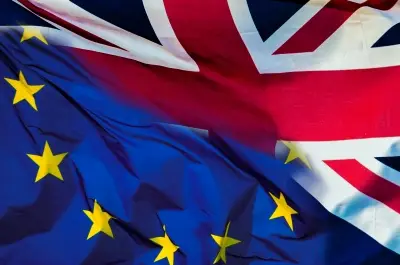Christmas Eve 2020 saw a historic agreement on the UK’s future trading relationship with the European Union. Despite being a bare bones deal, symbolically it was meant to herald an exciting new era of ‘Global Britain’, taking the country out of the Single Market and Customs Union, allowing the Government to say it had “got Brexit done”, and cementing Boris Johnson’s popularity with the right of his party.
Although there was never an exact definition of what ‘Global Britain’ meant, there was broad unanimity amongst Conservatives on what the general direction of travel should be, “a lightly regulated, low tax, entrepreneurial economy, at the cutting edge of modern science and economic change”, as David Frost reminded us in his recent resignation letter. He added that: “If, after Brexit, all we do is import the European social model, we will not succeed.”
The General Election victory of 2019 marked the biggest Conservative landslide since 1987, and alongside the levelling up agenda, was arguably the perfect opportunity to deliver this. Part of the challenge is that under Boris Johnson, the party has a much wider voter base, including a significant number of people who had never voted Tory before. For some, this has resulted in an agenda too focussed on spending and state intervention, rather than traditional small-state and low-tax Conservatism.
In Sebastian Payne’s recent book, Broken Heartlands, he spoke to the former Labour Shadow Chancellor, John McDonald, who reflected on the election and what’s happened since. “The whole flow of the debate is towards our ideas about how you create a more equal society, how you use the state to do that, and how you look at fairer distribution of wealth and power.” Two years on from that result, and over five since the referendum, it’s difficult to argue with that analysis.
In the past 12 months, Boris Johnson’s administration has increased Corporation Tax, National Insurance, and even frozen income tax thresholds, taking the UK’s tax burden to its highest level since the 1950s’ Attlee government. The Government would say that in dealing with an unprecedented crisis like a global pandemic, it has had to react accordingly, taken unprecedented and costly measures in response.
Previously a source of pride for Conservatives like Frost, Britain’s position in Europe as a liberal outlier on issues like Covid has also disappeared, with Johnson considering the prospect of abandoning the irreversibility of his roadmap with greater restrictions after Christmas, much to the indignation of Tory backbenchers. This is clearly data dependent, but further restrictions will only increase the ire caused by the vote on vaccine passports, which saw over 100 Conservative MPs rebel.
Although less pronounced than concerns over tax and Covid restrictions, discontent has emerged over the Government’s decision to accelerate Britain’s pursuit of net zero, with concerns around the cost and feasibility, and whether the technology required exists, or can even be scaled up. ‘Global Britain’ was intended to enhance the country’s competitiveness, and yet some Conservative backbenchers are questioning why a country responsible for 1% of emissions is locked into these targets when the world’s biggest polluters carry on as normal. These concerns culminated in the influential backbencher Steve Baker openly criticising the policy, and joining the Global Warming Policy Foundation, a climate sceptic group led by former chancellor Lord Lawson.
Although quiet frustration at the party’s direction has been brewing for some time, Tory MPs accepted this as the price of having an electoral asset like Johnson, who even against the backdrop of Covid, successfully delivered Hartlepool in May’s by-election. The recent series of unforced errors and allegations of mishandling has changed that, not least because it’s translated into a collapse in poll ratings and defeat in the Leave-voting and once-safe Conservative seat of North-Shropshire.
With the Prime Minister under immense pressure, some Conservatives are hoping he’ll rediscover his principles of 20 years ago, and adopt the free market vision of ‘Global Britain’ he championed during the leadership contest. Ironically, the resignation of Lord Frost, one of the biggest proponents of such an approach, may be the wakeup call needed to do just that.




